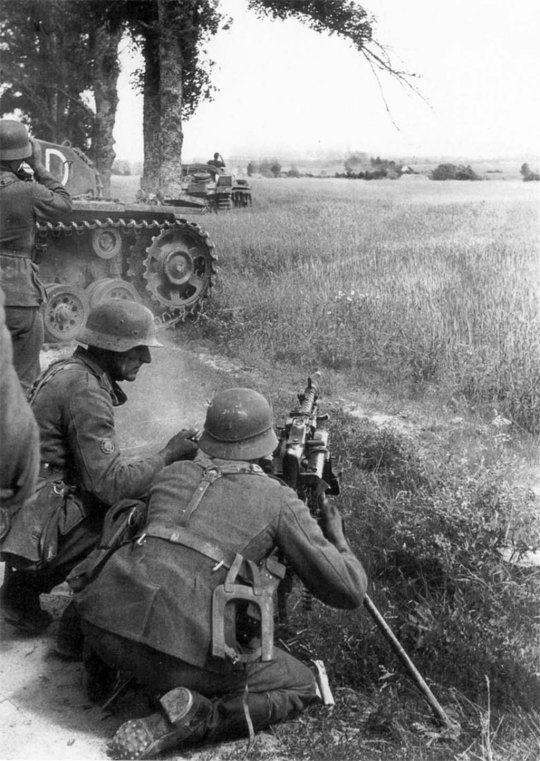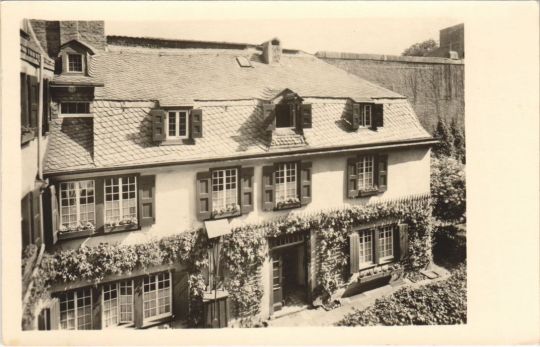#North-Germanic
Text
Characters reconnecting with their ancestral cultures in an interplanetary setting
@pixiedustandpetrichor asked:
Hi! I am writing a novel with three main female characters in an interplanetary setting. They grow up as orphans in an Irish-coded country and as children are mostly exposed to solely that culture, but they leave after becoming adults.
Character A is Tuareg-coded, B Mongolian-coded, and C is Germanic-coded. It isn’t central to the story, but I would like them to get in touch with/learn more about their ancestral cultures, especially in terms of religion. A does this by actually visiting the planet her parents came from, but B and C do not.
What can I do to depict their relationships with said cultures and their journey to reconnect with them? Would it be realistic for each of them to have different mixed feelings about participating in these cultures and for them to retain some sense of belonging to the culture they grew up in as well? Thank you for your time.
Hello, asker! WWC doesn’t have Tuareg or Mongol mods at the moment, so we're not able to speak to the specifics of cultural and religious reconnection for these particular groups. Still, I want to take this opportunity to provide some general context and elements to consider when writing Tuareg-coded characters, or other characters from groups that have experienced colonization in the real world. My fellow mods will then share thoughts about cultural reconnection in general and with respect to Germanic heritage in particular.
Drawing inspiration from groups that have experienced colonization
As you’re probably aware, the Tuareg are an ethnic group indigenous to North Africa. As with many indigenous groups, they have experienced colonization multiple times over the course of their history. Colonization often leads to the loss or erasure of certain aspects of culture as the colonized people are pressured to conform to the culture of the dominant group. In many cases, it’s near impossible to say what the ancestral culture of a colonized group was prior to colonization.
When coding a fictional culture based on a group that was colonized in the real world, it's important to ask questions about:
Which aspects of culture you're portraying
Where these aspects come from
Whether you're ready to tackle their implications for the world you're building
It’s not necessarily wrong to use elements of coding that draw from cultural aspects influenced by colonization. As I said, it can be very difficult, even impossible, to portray a “pure” culture as it would have been had colonization not occurred–because we simply can’t know what that alternate history would look like, and because so much has been lost or intentionally suppressed that the gaps in our knowledge are too wide to breach. But it’s important to be aware of where these cultural elements are coming from.
Where is your coding coming from and what are the implications?
For example, while the Tuareg today are majoritarily Muslim, this was not the case prior to the Arab conquest of North Africa. Some elements of Tuareg culture today, such as tea ceremonies, are derived from the influence of Arab and Muslim culture and likely did not exist prior to the 20th century. As you’re developing the culture of the Tuareg-coded group in your fictional setting, you have to decide whether to include these elements. There is no right answer–it will depend on what you’re trying to do and why.
Is your setting in our far future, in which case we can assume your Tuareg-coded group is distantly related to today’s Tuareg?
In that case, they will probably have kept many cultural aspects their ancestors acquired through their interactions with other cultures around them–including cultural groups that colonized them. They may–let’s build hopeful worlds!–have reclaimed aspects of their ancestral culture they’d been forced to abandon due to colonization. They may also have acquired new aspects of culture over time. This can be very fun to explore if you have the time and space to do so.
I would recommend speaking with Tuareg people to get a better grasp of how they see their culture evolving over the next however many centuries or millennia, what they wish to see and what seems realistic to them.
Alternatively, maybe your setting is a secondary world unrelated to ours and you only want to draw inspiration from the real-world Tuareg, not represent them exactly. In that case, you need to decide which period of history you’re drawing from, as Tuareg culture is different today from what it was 50 years ago, and different still from 200 years ago or 1000 years ago. You’ll need to research the historical period you’re choosing in order to figure out what was happening at that time and what the cultural influences were. If it’s pre-colonial, you’ll probably want to avoid including cultural elements influenced by colonization from groups that arrived later on.
Finally, if the time period you’re drawing from is post-colonial:
Are you planning to account for the effects of colonization on Tuareg culture?
Will you have an in-world equivalent for the colonization that occurred in real life?
For example, will the Tuareg-coded characters in your world be from a nomadic culture that was forced to become sedentary over the years and lost much of their traditions due to colonial pressure to conform?
Where did this pressure come from in your world–is it different from what happened in ours? If so, how different? And what are the consequences?
Writing about colonization can be quite the baggage to bring into a fictional setting. I’m not saying it can’t be done, but it will certainly require sensitivity and care in portraying it.
In summary: think it through
I’m not saying all this to discourage you, but to point out some of the considerations at play when drawing inspiration from a real-life culture that has experienced colonization. Similar challenges arise for coding based on any other indigenous group in the world.
My advice to you, then, is to first sit down and decide where and when in history your coding is coming from, and what you’re trying to achieve with it. This will help you figure out:
which elements of contemporary Tuareg culture are pertinent to include
How much your coding will be influenced by the Tuareg’s real-life history
To what extent that will inform the rest of the world you’re creating
This, in turn, may help in deciding how to portray your character’s reconnection journey.
Again, I am not Tuareg and this is by no means meant to be an exhaustive list of considerations for writing Tuareg-coded characters, only a few places to start.
If any Tuareg or Amazigh readers would like to chime in with suggestions of their own, please do. As always, please make sure your comments adhere to the WWC code of conduct.
- Niki
Pulling from diaspora and TRA narratives of cultural reconnection
Marika here: This ask plotline could also pull directly from diaspora and TRA narratives of cultural reconnection. Many diaspora and TRA cultural reconnection stories are, in effect, about navigating the difficult process of resuscitating, or renewing ties to culture using limited resources in environments that often lack necessary cultural infrastructure or scaffolding.
See this question here to the Japanese team for suggestions of how to handle such a storyline in a similar sci-fi setting.
More reading: Japanese-coded girl from future
-Marika
Reconnecting with German heritage
Hi, it’s Shira. I’m not sure whether German-Jewish counts as Germanic for the purposes of your post but since German Jews were more assimilated than other Ashkies, Germanness does feel real and relevant to my life (especially because my father worked there for approximately the last decade of his life.) NOTE: when I see “Germanic” vs German I think of cultures from 1500 years ago, not 100-200 years ago, so I can’t help you there, but I’d be surprised as a reader if a character focused on that for reconnection to the exclusion of the 19th century etc.
People in the United States specifically, reconnecting with German heritage, often lean into Bayerischer/Bavarian kitsch, I’ve noticed. Personally, though, what I find most relevant is:
1. The food (although I’ve come to learn that what I grew up eating was closer to veal/chicken scallopini than actual schnitzel because it was drenched in lemon, but I do like the other foods like the potato salad and sweet and sour red cabbage etc.) Your character could try making one of these “ancestral” foods as a way to reconnect?
2. The classical music, because I’m a second generation professional musician – if character C plays an instrument, leaning into that might be meaningful (Beethoven, Bach, Brahms, Mendelssohn, Clara Schumann and her husband Robert, etc.)
3. The nature, especially specifics that I enjoyed during my time there – personally, I loved the bright pink flowers all over the chestnut trees, but there are a lot of choices especially because of the Alps. If C is an artist maybe they can sketch something Germany-related from old photographs they found on the Space Internet?
I think it is VERY realistic for the characters to remain connected to the culture in which they were raised, by the way, whether or not they have positive feelings about it. Culture isn’t an inherited trait. Sure, if they want to completely walk away, they can, but I bet there are still ways it will creep back in without them realizing it simply because it’s really hard to have universal knowledge of the origins of all our quirks. Plus, not everyone feels alienated from their raised-culture just because they’re genetically something else.
P.S. There is also Oktoberfest, which I don’t really get into but is a thing, and beer, which is another point of German cultural pride.
German gentiles, weigh in – y’all have your own stuff, I know! OH YEAH so for German Christians, Christmas “markets” are a whole thing. That’s worth looking up.
–S
What do you mean by Germanic?
Hello it’s Sci! I had to study German history for my historical fantasy novel set in the late 18th century Holy Roman Empire. I am not sure what is meant by Germanic as that can encompass a variety of things.
Germanic people: from the Classical Period of Roman Empire and early Middle Ages. Similar to Mod Shira, I unfortunately can’t help very much here.
The Germanosphere: regions that spoke German, which includes modern day Germany, Austria/Hungary, Switzerland, Lichtenstein, Belgium, and Luxembourg. I generally define this as the regions captured in the Hapsburg Empire along with Switzerland usually encompassing “Central Europe.”
Modern German national identity (i.e. German): post Napoleon and the Congress of Vienna (> 1815) only including the territory of modern day Germany.*
I ask this because modern German national identity is surprisingly recent since Germany only popped up in 1871 under Otto von Bismarck. Previously, Germany was divided into smaller states and city states as a very decentralized region under the German Confederation and before that, the Holy Roman Empire. Depending on the era, you can see different conflicts and divides. During the early days of the Protestant Reformation started by Martin Luther, the northern and southern German territories generally split along Protestant-Catholic lines. The 18th century saw Austria and Prussia as the foci of global power who warred against each other even though both were part of the Holy Roman Empire.
Other states and city-states like Baden-Wurttemberg or Saxony sometimes had power but it was typically more localized compared to Austria. Post-WW2, you saw the split of Germany into West Germany run under capitalism and East Germany run under communism as a satellite Soviet state leading to more modern cultural divides. Due to heavy decentralization historically, each region had its own character with religious and cultural divides.
Assuming that the Germanic character is not from the classical period or early Middle Ages but not from the 19th century either, you can include your character reconnecting to classical folklore like that of Krampus (if they’re Christian), German literature and music like the works of Johann Wolfgang von Goethe or Mozart, or German philosophy like Immanuel Kant.
*A major wrinkle: German royals and nobility married into other states and nations frequently with Britain and Russia being notable examples. In Britain, the House of Hanover took over after the Stuart House died without clear direct heirs. When Queen Victoria married the German prince Albert, they celebrated Christmas with a tree and brought the German tradition of a Christmas tree to Britain and the British Empire. Only during World War I did the royal family’s house of Hanover name change from House of Saxe-Coburg and Gotha to the more “English-sounding” Windsor. As a result, the German cultural influence may be even more widespread than we think.
However, without more specific descriptors of what Germanic means in the context of your story, it can be difficult to determine which aspects of German culture your character could reconnect to.
-Mod Sci
#culture#cultural disconnect#cultural reconnect#race coding#ethnic coding#German#Mongol#Tuareg#setting#science fiction#Jewish#Colonialism#History#North Africa#Arab#Muslim#history
337 notes
·
View notes
Photo

Every country that borders the North Sea speaks a Germanic language, except France.
139 notes
·
View notes
Text

Glücksburg Castle – Magnus Weidemann
German, 1880–1967
Oil on masonite , 52 x 75.5 cm. 20.5 x 29.7 in.
#Magnus Weidemann#german artist#lake landscape#Schleswig-Holstein architecture#architecture#building#North Germany#Glücksburg Castle#renaissance castle
134 notes
·
View notes
Text

The Hermannsdenkmal "Hermann Monument" a colossal statue of Arminius in the Teutoburg Forest, North Rhine-Westphalia, Germany
#arminius#germania#statue#freedom#germany#german#europe#european#art#history#antiquity#ancient#teutoburg forest#heroes#monument#north rhine westphalia#lippe#forest#grotenburg#teutoburger wald#battle of the teutoburg forest#varian disaster#cherusci#hermann#statues#battle#ancient rome
338 notes
·
View notes
Text

#i felt silly#for legal reasons this is a joke#hetalia#itabros#german bros#hws italy#hws veneziano#hws germany#hws romano#hws south italy#hws north italy#hetameme#aph germany#aph italy#aph romano#aph north italy#aph south italy#aph veneziano#Italy is asking in his dialect if Germany has hemorrhoid inside the head
75 notes
·
View notes
Note
hello!!! sorry if this is a personal ask, but i was wondering if you would be interested in talking about some of your region's language and dialect? its difficult to find information on specific demographics and how their dialects relate to the language overall, and im also in a lot of trouble with the german teacher crime syndicate and if i remain unable to roll an r they might get me - anon
Not personal at all! I'd love to talk about my dialect and I'm holding back from writing a whole essay about it rn :'D
If your German teachers make you roll your r they're either trying to make you sound Southern* or they're not even trying to teach you the uvular r. Neither one of these options is ethical. Standard German (TM) doesn't include rolled r sounds, the uvular r is way more common! I hear it's hard for Anglos to do, but just think of the k and g sounds - they get your tongue in the right position for that guttural non-rolled r :) (check this video, it explains pretty well)
I'm a Saxon speaker. This dialect has the same unfortunate connotations as deep Southern or Midwestern US accents; uneducated, bigoted, small-minded and all that, and it's considered unprofessional to speak it on the job (top 10 things that make me yearn for violence btw).
Anyway. Saxon my beloved!! It's very laid-back and fun. Whimsical, even. Your tongue kinda just stays at the back of your mouth, pronunciation is incredibly lazy, soften all the consonants. Since it's a Middle German dialect and not a High German one, some words are closer to English, too! Apfel becomes Appel, for example.
Saxon is also universally used when ppl satirize/mock East Germany or the entire region ig even though the dialects here are super diverse, too. And I'm not even from the state of Saxony but whoever drew the new state lines after the reunification had to have been WASTED cause wtf is Sachsen-Anhalt?? Whenever I open my mouth ppl just clock me as Saxon or maybe Thuringian but NEVER as Anhaltian.
Hope this helps, feel free to ask more! Good luck with your teachers 💥💥
#* some low german dialects around the baltic north sea coast also roll the r#and another thing: you can tell if someone is saxon even when they're speaking english#it's so strong it's wild#german stuff#ask
53 notes
·
View notes
Text
Prussia: You know, Italy gives Germany flowers everyday. I wish you'd do that too.
Austria: Okay…?
*Later*
Austria: *gives Germany flowers*
Germany: ???
Austria: I don't know. I'm confused as well…
#hetalia#hetalia italy#hetalia germany#hetalia austria#hetalia prussia#aph austria#aph north italy#aph prussia#aph germany#hetalia incorrect quotes#feliciano vargas#roderich edelstein#ludwig beilschmidt#gilbert beilschmidt#hws north italy#hws austria#hws germany#hws prussia#pruaus#gerita#german bros
40 notes
·
View notes
Text
Inside tour of Tiger 131
160 notes
·
View notes
Text

1st Gebirgsjägers Division Edelweiss firing an MG 34, Heeresgruppe Nord (Army Group North) Summer 1941. In the background StuG III assault gun
25 notes
·
View notes
Text

#free palestine#end zionism#palestinian genocide#ethnic cleansing#settler colonialism#save Gaza#Feed North Gaza#German Holocaust#Israeli Holocaust
32 notes
·
View notes
Text


"Bagatelle"
Karl Lagerfeld for Jean Patou Haute Couture Collection Fall/Winter 1958-59.
(top) Eva Marie Saint in the "Bagatelle" cocktail dress in Alfred Hitchcock's North by Northwest.
(below) A model wearing the “Bagatelle” cocktail dress. Photo Georges Saad.
Karl Lagerfeld pour Jean Patou Collection Haute Couture Automne/Hiver 1958-59.
(top) Eva Marie Saint dans la robe de cocktail "Bagatelle" dans La mort aux trousses de AlfredHitchcock.
Un modèle portant la robe de cocktail "Bagatelle". Photo Georges Saad.
#haute couture#fashion 50s#1958-59#german designer#french style#fall/winter#automne/hiver#bagatelle#eva-marie saint#alfred hitchcock#north by northwest#geaorges saad#american actress#cocktail dress#robe de cocktail#jean patou
41 notes
·
View notes
Text

Beethoven's house in Bonn, North Rhine-Westphalia, Germany
German vintage postcard
#vintage#photography#postkarte#carte postale#north rhine-westphalia#postal#briefkaart#postcard#north#old#german#westphalia#germany#beethoven#rhine#photo#bonn#ansichtskarte#house#sepia#postkaart#ephemera#tarjeta#historic
56 notes
·
View notes
Text

Cool older brother
#aph north italy#aph prussia#aph japan#aph germany#hetalia#aph italy#hws north italy#hws prussia#hws japan#hws germany#hws italy#german bros#junestuff#little lud and his best friends just love gil#there's no one cooler for them at this age#and gil's the kind of kid that plans the best games#probably the last drawing of the year?
226 notes
·
View notes
Text

Vollmond by August von Wille
#august von wille#art#vollmond#full moon#moon#german#germany#düsseldorf#landscape#europe#european#mountains#mountain#sky#moonlight#moonlit#north rhine westphalia#clouds#night#evening
69 notes
·
View notes
Text
Speaking of etymological foreshadowing, the name Alayne is a variation of the French name Elaine, which itself derivated from the Greek name Helen and means “sun rays, awakening.” Not only it reinforces the symbolism Sansa has with the sun and the dawn, it also reinforces the parallels she has with her Aunt Lyanna and the Rose of Winterfell. The name Lyanna is a variation of Eliana, which either derivated from the name Helen or from the Late Latin name Aeliāna (of the sun). The author probably picked Lyanna’s name as a reference to Helen of Troy, whose abduction started a war, and to parallel her to Elia, who is also named after Helios the sun god.
#asoiaf#my meta#valyrianscrolls#sansa stark#lyanna stark#elia martell#alayne is also a old german name that means precious#probably a reference to sansa's valuable status as the key to the north
168 notes
·
View notes
Text


Cologne Cathedral, Germany.
#Cologne Cathedral#Kölner Dom#Cathedral Church of Saint Peter#Germany#cathedral#Cologne#North Rhine-Westphalia#Gothic architecture#Catholic Church#German Kölner Dom#Gothic cathedral
95 notes
·
View notes